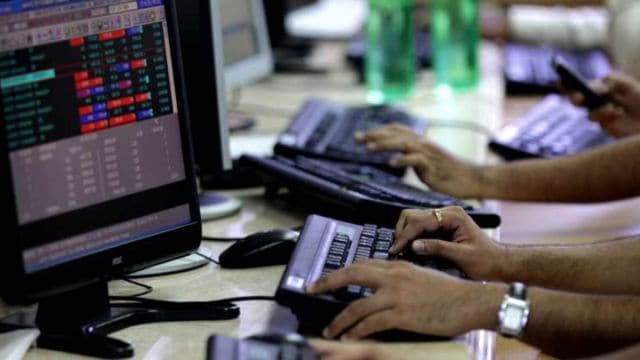ICICI MF’s Naren warns: Retail investors taking all the risk amid high valuations
If you invest in mid-caps, we'll invest in mid-caps (shares). If you invest in multi-caps, we'll invest in multi-caps, said Sankaran Naren, Chief Investment Officer of ICICI Prudential Mutual Fund,
 In the last one year, the government did everything possible. They cut GST, they cut income tax, they reduced interest rates, said Sankaran Naren, Chief Investment Officer of ICICI Prudential Mutual Fund. (File photo)
In the last one year, the government did everything possible. They cut GST, they cut income tax, they reduced interest rates, said Sankaran Naren, Chief Investment Officer of ICICI Prudential Mutual Fund. (File photo)India’s top fund manager has a word of caution for retail investors riding high on the stock market boom. Sankaran Naren, Chief Investment Officer of ICICI Prudential Mutual Fund, has warned that investors are unknowingly shouldering the bulk of market risk — especially those who have gone all-in on equities, mid-caps, and small-caps amid soaring valuations.
“This is the risk that all of you are taking, and I don’t think people are aware of it, and this is the biggest worry that I have at this point of time — that the investor is taking all the risk,” Naren said.
“Who is the seller? The seller is private equity. Private equity knows everything about the company. They know whether that stock is overvalued at 40 times or 50 times. The promoter is selling. The promoter knows whether the stock is overvalued or undervalued,” he said at the Morningstar investor conference.
“All of them are selling. The multinationals are also selling today. Just imagine — it means that the entire value of all that they operate in, in their home country and everywhere in the world, is negative. So how high is the valuation in India, you know? Why are they selling? They know that the valuation in India is so big. So, who is investing? The investor,” Naren said.
Is there anything wrong with the fundamentals? “No, I don’t think there is anything wrong with the fundamentals. Is there anything wrong with the macro? No. In the last one year, the government did everything possible. They cut GST, they cut income tax, they reduced interest rates. So, everything that had to be done in a good macro environment was done by the government. But the risks are taken by the investors,” Naren said.
What should investors do? “Therefore, they should invest in everything. They should invest in asset allocation,” Naren said. “They have to be invested in debt also. But if you look at this entire audience, you will find that they are only thinking of one asset class called equity, and they are not thinking of any other asset class… the asset class called debt is totally forgotten,” he said.
“The risk-taking for the entire country today is with the investors. People don’t seem to understand this aspect very clearly. If you invest in a small-cap fund, we will invest in small-caps (shares),” Naren said. It may be recalled that investors have been pumping more and more money into small and mid-cap funds in the last several quarters. While this money will have to be invested in stocks, valuations are high in the secondary market and IPO shares.
“If you invest in mid-caps, we’ll invest in mid-caps (shares). If you invest in multi-caps, we’ll invest in multi-caps. So tomorrow, if at some point of time, there are costly small-cap issues, the small-cap fund manager will invest in those costly small-cap issues. If there are costly mid-cap issues, the mid-cap fund manager will invest in the costly mid-cap issues. If the SIPs come in mid-caps… there are mid-cap IPOs that are very costly. The reason would be that we are getting money in mid-caps, so they are investing in mid-cap stocks. So essentially, the risk has been transferred to all the investors.”
“I don’t think this part has sunk into most investors, or the distributors, or the asset allocators. If at some point of time, small-caps correct, people will say, who made the decision? The investor,” Naren said.



- 01
- 02
- 03
- 04
- 05




























